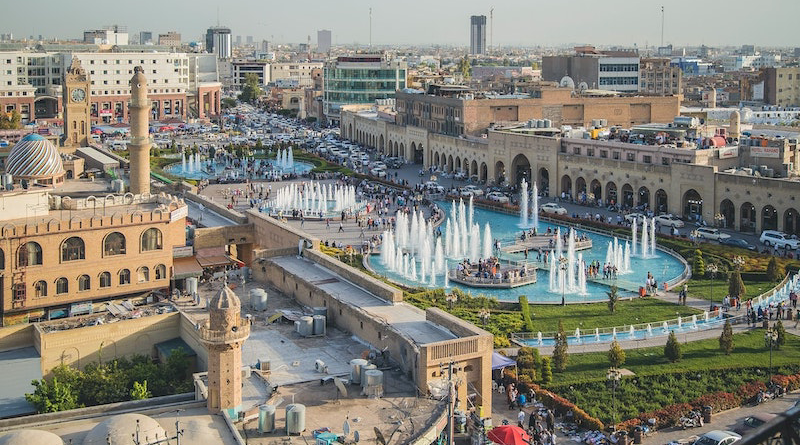Is Iraq Worse than Vietnam?
Some thought on Ross Douthat’s latest assessment.
By Daniel W. Drezner, Professor of International Politics at the Fletcher School
There’s been a lot of navel-gazing this month on the 20th anniversary of the U.S.-led invasion of Iraq. With a few self-interested exceptions, the consensus among policymakers and pundits is that the war was a horrible mistake: one of the biggest, costliest miscues in the history of American foreign policy.
I don’t disagree with that assessment in the main, but Ross Douthat’s New York Timesnewsletter on the topic did give me some pause. Like me (and like most Americans at the time), Douthat initially supported the invasion but soured on it quickly. Looking back, Douthat’s conclusion is not just that the war was a disaster, but that it was worse than Vietnam:
Today there’s a stronger case for seeing Iraq as a more epochal disaster. In American domestic life the Vietnam effect was more of a fever, whereas the Iraq effect seems like a wasting or relapsing disease. The war’s influence has percolated inside other social crises, like the opioid epidemic, that have become more visible and destructive over time. Its lingering effects have made the body politic more susceptible to left-wing radicalism and right-wing demagogy, while contributing to a persistent mood of pessimism and disappointment that’s then been exacerbated by other forces (social media, the coronavirus pandemic).
So a few things. First, when it comes to, say, trust in institutions, Vietnam was just as bad as Iraq in its effects. Second, while I share Douthat’s concerns about the polarization of the American public, Iraq seems like a small pebble compared to the other shocks to the system. There were bigger exogenous shocks (like the 2008 financial crisis) after Iraq and longer-running political trends (like the increase in economic inequality and rising levels of partisan sorting) that predate Iraq.
The domestic political effects are noy my primary interest in Douthat’s column, however. It’s the discussion of international effects that caught my eye:
It is in the effect on America’s global position that the costs of the Iraq war really keep compounding. It’s now clear that not just the war alone but its ever-spreading secondary consequences — which included our futile overinvestment in Afghanistan, fatefully cast as the “good war” by many Democrats opposed to the Iraq invasion — kept us tied us down during critical years of geopolitical realignment, making it hard to even think about, let alone cope with the revival of Russian power and the rise of China to superpower status….
Now return to the comparison between 2023 and our Reagan-era situation, barely a decade after the last helicopters left Saigon. By 1985, we had managed to separate China from Russia, the Soviet economy was faltering and Mikhail Gorbachev had just been elected general secretary of the Communist Party, with glasnost and the fall of the Berlin Wall just around the corner. Today, with Russia and China increasingly aligned together against us and Chinese influence increasing, we seem to be descending back into the kind of twilight struggle that in ’85 we were poised to finally transcend. So if Vietnam 20 years on looked like a disaster that in our strength we were able to absorb, a surmountable obstacle to American ascent, Iraq 20 years on looks more like our empire’s nemesis, full stop.
Now this is a more potent argument, akin to David Edelstein’s argument in Over the Horizon that the United States focused too much on short-term threats in the 2000s, thereby ignoring the more serious threat of China’s rise. The Sino-Russian alignment is certainly a concerning one, although the latest Putin-Xi summit was less than meets the eye in terms of deliverables.
Douthat elides some history that suggests the situation might not be as dire as he suggests, however. The most obvious point is that in the wake of Vietnam, the Soviet Union badly overextended itself, intervening in multiple conflicts in the Global South that wound up draining resources from the Soviet economy. The most catastrophic Soviet move was its invasion of neighboring Afghanistan. It was in the aftermath of those movies that the USSR collapsed and U.S. hegemony dominated the globe for the next generation.
Fast-forward to now, and one could argue that Russia is certainly playing its same role again. Douthat asserts the, “all-but-certain influence of our final defeat in Afghanistan on Vladimir Putin’s decision to invade Ukraine.” I have my doubts about that argument. Even if one grants that premise, however, Russia’s invasion of Ukraine is proving to be far more costly to Russian power than its Afghanistan invasion. As Mark Galeotti put it in a book talk he gave at Fletcher last night, “20 years of military reform have been burned away in 20 weeks of war.” As for China, it’s still recovering from own-goals like its wolf warrior diplomacy and zero-Covid policies. In other words, U.S. retrenchment in both eras led U.S. adversaries to overreach in an even more catastrophic way.
Douthat might still be proven correct, and either way Iraq was a debacle. It is always worth remembering, however, that sometimes U.S. mistakes beget mistakes by adversaries too eager to pounce. In other words, when it comes to great power screw-ups, the United States is hardly alone.
This post was republished from Drezner’s World.

